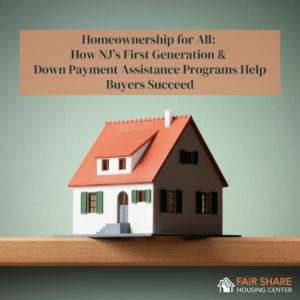Housing is a Feminist Issue
March 25th, 2022
By Yvette Chen, Planning & Policy Analyst
Urban planning and the design of our cities and suburbs have always perpetuated inequality by race, gender, ability, and class. Historically, marginalized groups, including women, have not been involved in shaping our built landscapes nor housing policies, though they are disproportionately affected by them. Although COVID-19 is first and foremost a health crisis, it has amplified other crises in the home and the labor market. When we think critically about how housing issues and their solutions overlap with structural issues like gender inequality, we can begin to more clearly envision a society that provides for all people’s basic needs.
In writing about and researching the gender gap, there is an inherent data bias. As Caroline Criado Perez outlines in her book, our modern world is run on data, but data that fails to take account women’s experiences, needs, and lives, by prioritizing men, who are recognized as the universal norm.
From the data we do have, we know that even before the pandemic, women were more likely to experience economic insecurity and were disproportionately evicted. Occupational segregation pushes women into lower paying jobs in the domestic, healthcare, and hospitality fields, and these same fields have borne the brunt of pandemic-related job losses. Not to mention the financial expenses and labor involved in childcare or caring for family members and the closing of schools which further strained budgets. During the pandemic, a census survey in May 2021 found that among renters, 25% of black women, 20% of Asian women, and 18% of Latinx women reported being behind on their rent in comparison to 9% of white men and 9% of white women.
These precarious financial situations, a corresponding greater economic dependence on men, and a lack of affordable housing options puts women at a higher risk of domestic violence and homelessness. The increase in gender-based violence during the pandemic is similar to what happened after other historically catastrophic events; after Hurricane Katrina in 2005 and the earthquake in Haiti in 2007—women faced greater psychological and physical abuse.
COVID-19 has caused major breakdowns in our social infrastructure – stressors over lost income, precarious employment, and lockdowns. In cities and states throughout the United States, domestic violence cases increased by 25-33% in 2020. Domestic violence is the leading cause of homelessness for women. Nuisance ordinances and zero-tolerance policies drive evictions among domestic violence survivors. Due to nuisance enforcement, tenants, regardless of their role in an incident, are held responsible for any crime on their property or physical damage to the apartment.
More equitable housing policies can begin to remedy the gender disparities caused and worsened by the pandemic. As outlined by CBPP, expanding the voucher program to all eligible households (currently only 1 in 4 eligible families receive assistance) would help lift 5 million women and girls above the federal poverty line. Currently, housing programs disproportionately benefit women because they are in the most need of support, however, more programs should be specifically tailored to meet their needs. In addition to improved housing infrastructure and assistance, we need to consider more investments in supportive housing, access to mental health resources, and coordinated wraparound services that include assistance with childcare, employment, and education.
Moving forward, we need to move away from thinking about the economy as market production and exchange to how a society can be organized around care. Similar to the Combahee River Collective’s ethos and conception of intersectionality – that centering Black women and the most marginalized can allow an analysis and necessary solidarity for all oppressed people – when we think about improving housing conditions for the most vulnerable, especially those experiencing multiple disadvantages, we are fighting for a better world for everybody.






